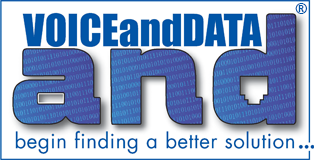Data is the lifeblood of most businesses. The information a small business collects will dictate its future decisions and help optimize its strategies. For example, having a better understanding of your target audience allows you to offer better products and services.
You might be surprised to learn that 43% of collected data goes largely unused. Outsourcing to a third-party provider can help acquire and manage data more effectively. Let’s explore the key information you should know about data management as a service (DMaaS).
What Is Data Management as a Service?
This process involves using cloud-based storage to consolidate data from multiple sources. It’s generally offered as an enterprise solution and covers the entire data lifecycle.
This includes collection, storage, movement, protection, and analysis. The primary goal of DMaaS is to maintain data accessibility, usability, and security.
How DMaaS Works
Using DMaaS is a relatively simple process. You’ll work with a service provider to determine which data management option meets your needs.
This lets you forego buying equipment and managing the data infrastructure yourself. In many cases, this can save a substantial amount of time and money. Reputable providers will use a combination of automation, artificial intelligence (AI), and machine learning (ML).
Benefits of DMaaS
One of the primary benefits of data management as a service is streamlined data handling. With a reliable service provider on your side, you’ll sift through data more efficiently and find the information you’re looking for.
Increased data protection is another attribute you shouldn’t overlook. Through the use of automation, your service provider can take measures to secure data from common cyber threats.
In context, it can identify and resolve issues before they evolve into something more serious. Considering that the average data breach cost a record $4.4 million in 2022, this is key information to keep in mind. DMaaS is also highly scalable.
Your company can easily manage its data as it grows. Large businesses often have data spread across several cloud servers. You can use your data management platform to automatically locate information based on certain criteria.
This allows you to update, modify, or remove information much faster than you could manually. Having more control over your information also helps your company stay compliant with industry standards.
Getting Started
The first step is finding a reputable third-party service provider. They have the required tools and resources to ensure you get the data management results you need. Look at their past reputation before making your decision.
There should be no shortage of positive feedback from other clients. You should also ask about the pricing structure. If they aren’t transparent about where your money goes, continue your search elsewhere.
Do they have a solid customer support policy? The last thing you want is to handle issues on your own. With enough research, you’ll find the ideal solution.
Take Action ASAP
The longer you wait, the less likely you’ll utilize your company’s data to its fullest extent. As long as you do your due diligence, you can effectively leverage data management as a service and take your performance to the next level.
Voice and Data, Inc. has proudly served clients since 2006. We offer cost-effective solutions that encourage creativity and facilitate a successful work environment. Book a consultation today to learn how we can help.


























